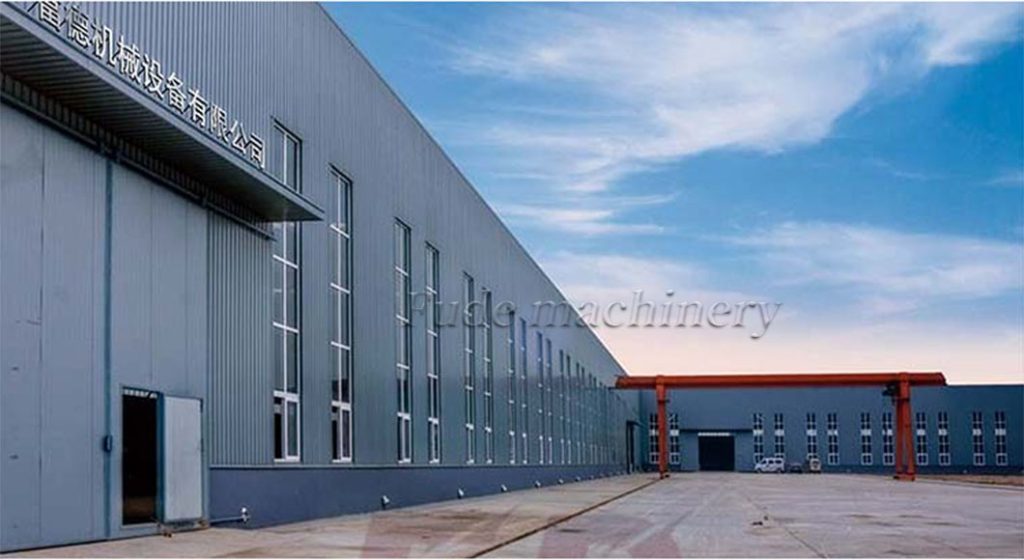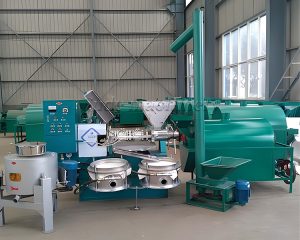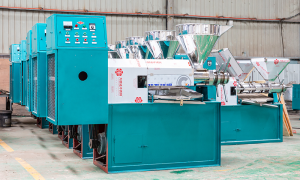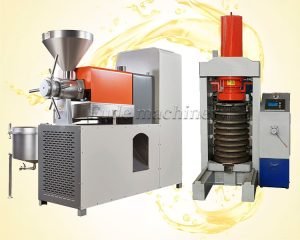How to start a vegetable oil pressing business?
If you want to join the field of vegetable oil pressing and start your entrepreneurial journey, you first have to understand how to start a vegetable oil pressing business; and in preparation, you need to identify the main differences between oil finishing in a home studio and commercial production, which is essential for subsequent business planning.
Commercial production demands higher capacity, efficiency, automation, consistent quality control, adherence to food safety regulations, and robust byproduct handling, unlike smaller home workshop setups focused on personal use or very small batch sales.
While the basic principle of pressing oil from seeds is the same, moving from a small home workshop to a commercial operation involves significant differences. Capacity is the most obvious: commercial Oil Mill Plant use larger, faster machines designed for continuous or semi-continuous operation over long hours, unlike small presses meant for intermittent use. Efficiency and automation become critical in commercial settings to manage costs; this includes using conveyors, automated temperature controls (Automatic Temperature Control Oil Press), and integrated systems. Quality control is much more rigorous commercially – needing consistent results batch after batch and often involving lab testing. Food safety regulations (like hygiene standards, material traceability, proper labeling) are strict legal requirements for commercial producers selling to the public, which may not apply to home use. Handling byproducts like oil cake efficiently is also more important at scale, requiring proper storage and sales channels. Commercial operations need more space, higher initial investment, and often skilled labor, whereas home setups are simpler and less costly.


What Are the Key Factors Affecting Vegetable Oil Yield?
Key factors impacting oil yield include the oil content of the raw material itself, seed quality (maturity, moisture content, purity), pre-treatment methods (cleaning, shelling, cooking), and the efficiency and settings of the (oil press machine).
Getting the maximum possible oil from your seeds is crucial for profitability. Several factors determine how much oil you can extract. The most fundamental is the inherent oil content of the seed variety – peanuts naturally have more oil than soybeans, for instance. Seed quality plays a big role: mature, healthy seeds yield more than immature or damaged ones. Moisture content is critical; each seed type has an optimal moisture range for pressing (too wet or too dry reduces yield). Purity matters – excessive trash or foreign material takes up space and absorbs oil. Pre-treatment is vital. Proper cleaning removes low-yield debris. Shelling (for relevant seeds) removes the low-oil hull. For hot pressing, effective cooking/roasting ruptures oil cells, making extraction easier and significantly boosting yield. Finally, the oil press itself is key. A well-maintained machine with properly adjusted pressure and speed settings, and wear parts (screw, chamber) in good condition, will extract oil more efficiently, leaving less residual oil in the cake. Understanding and controlling these factors is essential for optimizing your Oil Mill Plant’s output.
Can Crude Oil (Virgin Oil) Be Sold Directly, or Does It Need Refining?
Crude (virgin) oil can sometimes be sold directly, especially for certain cold-pressed oils where natural characteristics are valued. However, often basic filtration is needed, and further Refinery Equipment (like degumming, deacidification) may be required for stability, safety, or market acceptance.
Whether you can sell the oil straight from the press (crude or virgin oil) depends heavily on the type of oil, how it was processed, and your target market’s expectations and regulations. Some oils, particularly high-quality cold-pressed ones like extra virgin olive oil, flaxseed oil, or specialty nut oils, are valued for their natural flavor, color, and nutrients found in the crude state (after basic filtration). Selling them unrefined is standard practice. However, most oils pressed, especially using heat, contain impurities like fine solids, gums (phospholipids), free fatty acids, and pigments that can affect flavor, shelf life, appearance, and smoke point. At a minimum, crude oil usually needs filtering using a Filter Press to remove solids and improve clarity. For many common cooking oils (soybean, rapeseed, sunflower, peanut) intended for a wider market, further refining steps are often necessary to meet quality standards and consumer preferences for neutral taste, light color, and stability. This typically involves using Refinery Equipment for degumming, deacidification, and sometimes bleaching and deodorizing, depending on the required final product quality (e.g., Grade 1 or Grade 2 oil).

Refining Decision Factors
| Factor | Crude/Filtered Oil Suitable When… | Refining Likely Needed When… | Common Refining Steps |
|---|---|---|---|
| Oil Type | Specialty cold-pressed (olive, flax, nut oils). | Commodity oils (soy, rapeseed, sunflower, peanut). | Filtration, Degumming, Deacid. |
| Processing Method | Gentle cold pressing. | Hot pressing (higher impurities). | Bleaching, Deodorizing (optional) |
| Target Market | Niche markets valuing natural characteristics. | Mass market preferring neutral, stable, light oil. | Depends on market standards |
| Quality Standards | Meets basic clarity and FFA limits for virgin oil. | Needs lower FFA, lighter color, longer shelf life. | Tailored to meet specs |
| Intended Use | Direct consumption, dressings where flavor is key. | Frying, baking, ingredient use needing neutral profile. | Full refining for versatility |
How Much Startup Capital Is Roughly Needed, and How Can I Estimate ROI?
Startup capital varies hugely based on scale, location, and equipment choice, from thousands (small workshop) to hundreds of thousands of dollars (full plant). Estimate costs for equipment, site, raw materials, labor, utilities, and permits. ROI depends on yield, oil/cake prices, and operating costs.
Where Can I Find Reliable Oil Press Equipment Suppliers and Technical Support?
Problem: You need equipment, but who can you trust? Agitation: Choosing the wrong supplier means poor quality, no support, and wasted investment. Solution: Look for experienced manufacturers with proven track records.
Find reliable suppliers like us, Zhengzhou Fude Machinery, through industry directories, online searches (checking reviews/history), trade shows, and referrals. Prioritize manufacturers with experience, comprehensive product lines, customization ability, and good after-sales technical support.

Finding a trustworthy supplier for your Oil extraction equipment is one of the most critical steps. You’re not just buying a machine; you’re investing in the foundation of your business and potentially starting a long-term relationship. Look for established manufacturers with a proven history in the industry – we at Zhengzhou Fude Machinery have been manufacturing since 2005 and export globally. Check their product range: do they offer different types (screw press, hydraulic press), various capacities, and the necessary auxiliary equipment and even Refinery Equipment? This suggests comprehensive expertise. Can they offer customization based on your specific needs (material type, capacity)? Crucially, evaluate their after-sales support. Do they provide installation guidance, operator training, readily available spare parts, and technical assistance if issues arise? As a factory direct sales manufacturer, we offer competitive pricing and full-service support.
Conclusion
Starting your oil pressing business requires careful planning, from market research and choosing materials to selecting the right equipment and supplier like Zhengzhou Fude Machinery.
Related recommendations
-
Understanding oilseeds before starting an oil press?
5Why Must You Understand Oilseeds Before Investing in Oil Pressing Equipment?Soybeans (Soybean): One of the World's Most Important Oilseeds, What Are Its Oil and Processing Characteristics?Rapeseed/Canola (Rapeseed/Canola): High Yield and Adaptable...
View details -
Which countries are oil presses sold to
236As an important edible oil production equipment, the oil press has sales markets in multiple countries and regions around the world, and regions with oil press raw materials are potential customers for the oil press.
View details -
Introduction to multifunctional oil press
284Spiral oil press is a multifunctional equipment with the following characteristics: simple structure, small volume, easy maintenance, diverse oil pressing materials, high oil yield, large production capacity, and continuous processing.
View details -
Difference between hydraulic oil press and screw oil press
24Static Pressure: The Hydraulic WayDynamic Force: The Screw Press MethodWhich Press Suits Which Oilseeds Best?Hydraulic Press: Simple Use, Specialized CareScrew Press: Automated Flow, Routine MaintenanceWhich Press Type Matches Different Production...
View details
 Oil Press Equipment and Oil Refining Machinery for Sale – Start Your Oil Press Business
Oil Press Equipment and Oil Refining Machinery for Sale – Start Your Oil Press Business




HelloPlease log in